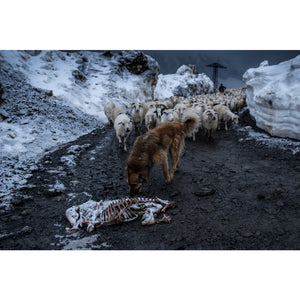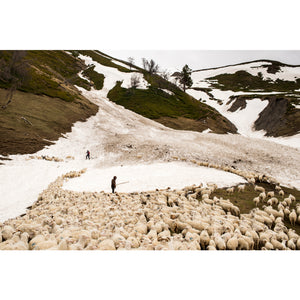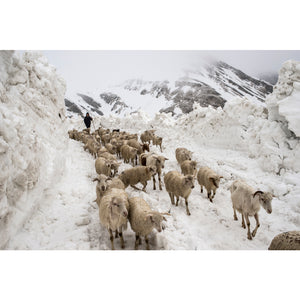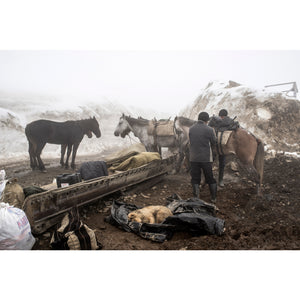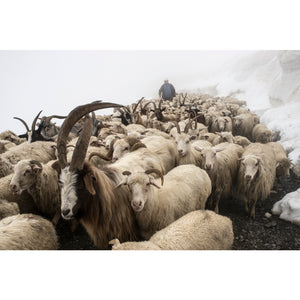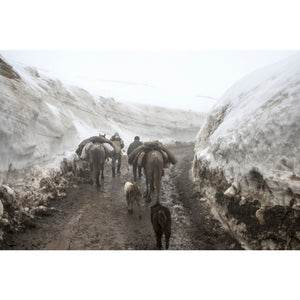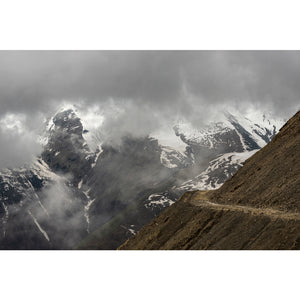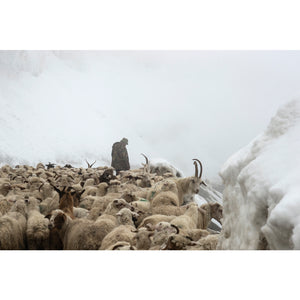Along with the search for opportunities for a more comfortable life, shepherding very quickly disappears from the tradition. See all photos in Shepherds Collection.
18 products
Morning on the way
Morning on the way
Passage through the snow
Passage through the snow
The way after the pass
The way after the pass
Repacking luggage for horses
Repacking luggage for horses
At the head of the herd
At the head of the herd
The pass
The pass
Way home
Way home
Waiting
Waiting
Return from the meadow to Lower Omalo
Return from the meadow to Lower Omalo
Discover Shepherds Story
It started in 2015, when going to Tusheti, I took my first photos of the meeting with shepherds who brought their flock from Tusheti to the Alazani Valley. I started asking questions and looking for information.
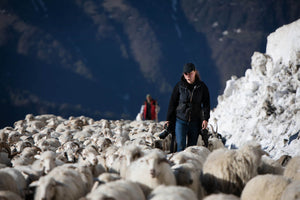
In the following spring, I set out for the first time with the shepherds on the spring sheep migration to Tusheti. After that, I took part in migrations many more times, immortalizing shepherd families, but this was the beginning of entering the community of Tusheti residents to learn about their stories, traditions, values ... before this culture disappears. This is how the project "Identity" was born and the pictures of shepherds are its inseparable part.
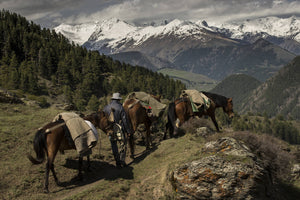
The perilous journey that shepherds take on foot and on horseback leading their flocks to Tusheti in the spring and from Tusheti to the Alazani Valley in the fall is demanding and sometimes deadly. The Tush family have been able to descend to the vast valley for the winter since the 17th century, and this is associated with a reward for helping the Kakhetians in the battle with the Persians. However, large-scale migrations began only in the 19th century, and after the road was built, in a place other than the main shepherd's route, the migration of highlanders to a safer place and return to Tusheti in the summer began.
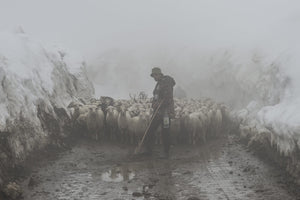
Along with the search for opportunities for a more comfortable life, shepherding very quickly disappears from the tradition of which it has been the main part so far. People are moving to places where they can have a better life and work all year round, where water, electricity and gas are always available. Many went abroad, some sold sheep and cows to work in tourism. Regional cheeses made in sheep's skin go into oblivion. Fewer and fewer young people stay in the mountains, and herding is too hard work for them.

